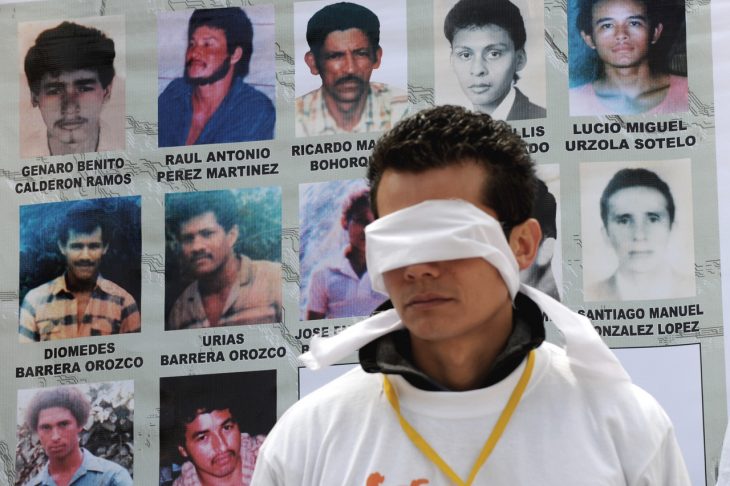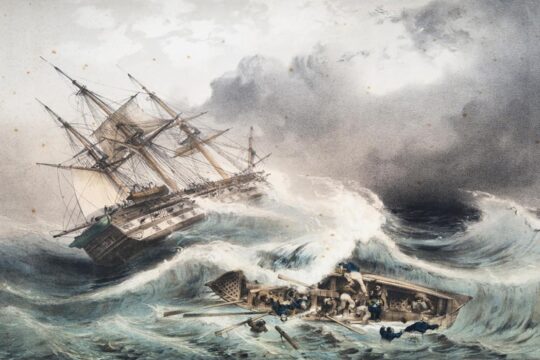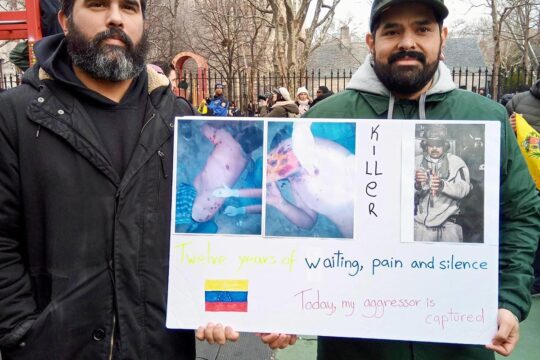Human rights organizations are asking the Prosecutor of the International Criminal Court (ICC) to include managers of Chiquita Brands International Inc. in her preliminary examination on Colombia. The International Federation for Human Rights (FIDH), the International Human Rights Clinic of Harvard University and Colombian NGO Colectivo de Abogados José Alvear Restrepo (CAJAR) accuse the multinational of having “contributed” to crimes against humanity committed by the United Self-Defense Forces of Colombia (AUC), a paramilitary group. They say that from 1997 to 2004, the world leading banana producer helped fund the AUC in full awareness of the crimes it was committing.
The complaint filed this Thursday May 18 to the office of ICC Prosecutor Fatou Bensouda targets 14 current and former managers of Chiquita and its former subsidiary Banadex for their “contribution” to crimes against humanity by Colombian paramilitaries. None of them are Colombian. They live, or used to live in the United States and “are probably American citizens”, according to a summary of the complaint. But the coalition of NGOs is not making these people’s identities public “so as to protect their rights and private lives”. That may well get people talking in the corridors of the multinational.
“Contributing” to crimes against humanity
The coalition against Chiquita Brand International Inc. is not asking the ICC to open an investigation at this stage. It is asking for the preliminary examination on Colombia, opened by the Prosecutor in June 2004, to be extended. In a report published in November 2012, Fatou Bensouda deemed that the Colombian army and police, rebel groups - Armed Revolutionary Forces of Colombia (FARC) and National Liberation Army (ELN) – and paramilitaries including the AUC may have committed murder, forced disappearance, sexual violence, torture and persecution of civilians that could be qualified as crimes against humanity. The Court can only intervene if the country concerned lacks either the will or the means to prosecute through national courts, and so the ICC Prosecutor has not so far opened investigations. Up to now, the preliminary examination has served as pressure on the Colombian authorities to conduct their own trials. Several trials have been held in Colombia in recent years, and the November 24, 2016 peace accord between the FARC-EP and the government provides for the creation of a Special Peace Jurisdiction (SJP) to try perpetrators of crimes against humanity from both sides. Parliament approved its creation at the end of March. This jurisdiction will also have the power to investigate the role of third parties that funded and supported the abuses, including multinational companies. The FIDH, a member of the NGO coalition, is therefore asking the ICC to monitor procedures in Colombia closely and ensure that those responsible at Chiquita do not remain unpunished. If the Colombian authorities were to desist from prosecuting the “suspects”, the ICC could conduct its own investigation and trial, the complainants say. According to them, Chiquita management “supervised and authorized” payments to the Norte, Elmer Cardenas and Bananero, blocs [the paramilitaries were organized in “blocs”] that were active in the banana growing regions of Antioga, Choco and Magdalena in northern Colombia, and so “contributed to the crimes against humanity committed by the Colombian paramilitaries” of the AUC. According to the NGO coalition, certain payments were made through the private security firm Convivir and others directly to the AUC. They say these payments of some 1.7 million dollars were “apparently in exchange for security services, but do not seem to have resulted in the provision of security services or equipment”.
Chiquita impunity
Chiquita’s past is paved with accusations. The United Fruit Company, its ancestor, had to change its identity so as people would forget allegations of corruption, influence peddling and human exploitation. But Chiquita’s dealings in Colombia rapidly tarnished the banana producer’s new image. The AUC was listed as a terrorist organization by the United States, making it illegal to conduct any transaction with the AUC. In 2007, Chiquita finally pleaded guilty to doing so, and was sentenced to a fine of 18.8 million Euros. The company, which stopped its activities in Colombia in 2004, said in its defence that it had been forced to pay the paramilitaries in order to protect its employees. But the American prosecutor said that, as a multinational, “Chiquita was not forced to stay in Colombia for 15 years, paying terrorist groups that were terrorizing the Colombian people”. Despite the company’s guilty plea, “not one of its managers has ever been prosecuted”, the NGO coalition stresses. The ICC Prosecutor is not obliged to follow up on such complaints (called “communications” in ICC jargon) filed to her office, but a possible intervention by the ICC is the nightmare of multinationals, whose lawyers warned of this as soon as the ICC was created. They have up to now managed to escape any prosecution before international tribunals, even if successive prosecutors have vowed to tackle “the sinews of war”. Several complaints have been filed at American courts in the last few weeks by victims of the banana producer, including a collective of more than 1,500 complainants. On May 11, the NGO National Security Archives published the “Chiquita Papers”, declassified documents according to which Chiquita Brand International also paid more than 800,000 dollars to the FARC and ELN in the 1990s. At the beginning of May, the smiling banana brand launched a new campaign in the US with big advertisements saying “work on your curve”. The complaint filed at the ICC is not likely to make the managers of Chiquita smile!






